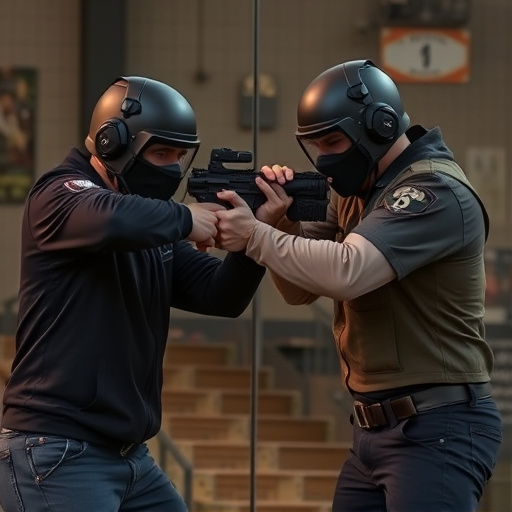Stun gun ownership and carrying in the US are governed by varied state regulations, affecting both personal rights and professional environments. Age restrictions, permit systems, and specific contexts like self-defense or security roles define legality. Workplace policies vary widely, with some states allowing stun gun carry for employees under certain conditions, while others prohibit it entirely. Employers must align their policies with state laws, potentially requiring staff training or permits for compliance and safety. Understanding these diverse requirements is crucial for maintaining a secure professional environment and adhering to both personal rights and legal obligations.
“Unraveling the complexities of civilian tasers: a comprehensive guide to state laws. This article navigates the intricate web of regulations surrounding stun gun ownership, offering insights into who can legally possess these devices and where. From understanding state-specific rules to exploring workplace policies and legal implications, we demystify stun gun carrying.
Key topics include eligibility criteria, professional environments, concealed carry rights, and defense considerations. By delving into these aspects, we aim to equip readers with knowledge in today’s digital era, where self-defense technologies are gaining popularity.”
- Understanding Stun Gun Regulations: An Overview of State Laws
- Who Can Own a Taser? Eligibility Requirements Across States
- Workplace Policies: Stun Gun Carrying in Professional Environments
- Reciprocal Concealment and Taser Ownership Rights
- Legal Implications: Defense and Use of Force Considerations
Understanding Stun Gun Regulations: An Overview of State Laws

In the United States, regulations surrounding stun gun ownership and carrying vary significantly from state to state, creating a patchwork of laws that civilians must navigate. Understanding these regulations is crucial for those interested in purchasing and carrying a stun gun for personal protection or in specific professional settings. The requirements often include age restrictions, permit systems, and specific contexts where stun guns are permitted, such as self-defense inside one’s home or while working in certain security roles.
Workplace policies also play a vital role in stun gun carrying laws. Some states allow employees to carry stun guns at work if they meet certain criteria, while others prohibit it entirely. Employers should be aware of these state laws and implement company policies that align with them to ensure compliance and the safety of all personnel. For instance, some workplaces may require staff to undergo specific training or have a concealed weapon permit before allowing them to carry stun guns on duty. Staying informed about local stun gun carrying laws is essential for both individuals seeking to exercise their rights and employers aiming to maintain a secure work environment.
Who Can Own a Taser? Eligibility Requirements Across States
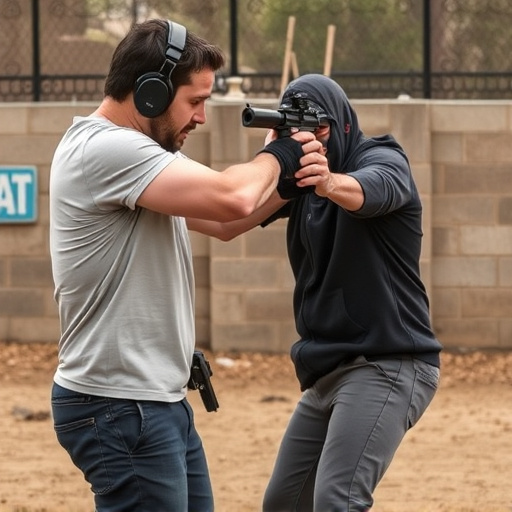
In the United States, the eligibility requirements for owning a taser, or stun gun, vary significantly from state to state. Generally, individuals who meet certain criteria related to age, background checks, training, and purpose can legally own a taser. Many states allow qualified individuals to carry a stun gun for self-defense within specific parameters. However, not all workplaces accommodate this right; some employers may have policies prohibiting the use or possession of stun guns on their premises.
State laws dictate who is eligible to purchase and carry a taser, with requirements such as completing a safety course, obtaining a permit, or being a law enforcement officer. For instance, some states require applicants to pass a written test and demonstrate proficiency in using the device. Additionally, certain states restrict taser ownership to individuals over a specific age, typically 21 or older. Understanding these eligibility requirements is crucial for those interested in owning a stun gun, as they vary widely across different states, impacting both personal and workplace environments.
Workplace Policies: Stun Gun Carrying in Professional Environments
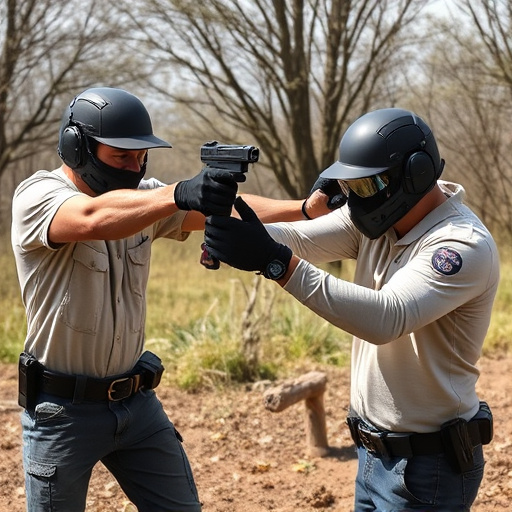
In many professional environments, the policies surrounding stun gun carrying are strictly regulated by state laws and workplace regulations. These policies vary significantly from state to state, with some permitting limited stun gun ownership for specific roles like security personnel or law enforcement officers, while others completely ban any form of non-law enforcement stun gun carrying. For instance, certain states might allow licensed individuals to carry stun guns in their personal capacity but prohibit them from doing so on company premises unless explicitly permitted by the employer and in compliance with local regulations.
Workplace policies also often include stringent requirements for training, storage, and use of stun guns. Employers typically mandate that employees undergo rigorous safety and handling courses before being allowed to carry a stun gun at work. Additionally, these devices must be stored securely on company property, away from unauthorized personnel, to prevent misuse or accidental discharge. Strict adherence to both state stun gun carrying laws and internal workplace policies is crucial for maintaining a safe professional environment.
Reciprocal Concealment and Taser Ownership Rights
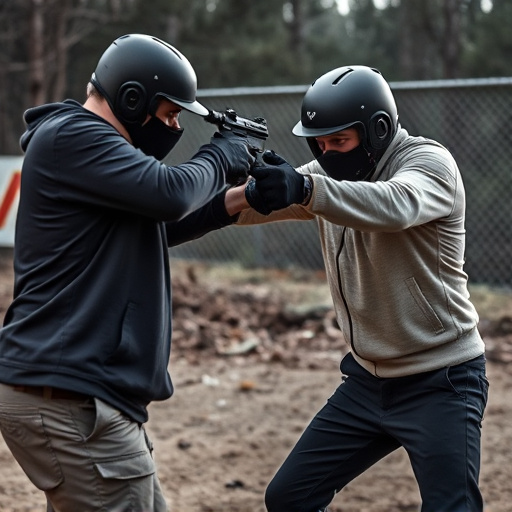
In many states, the conversation around stun gun carrying, or “reciprocal concealment,” has gained traction, especially regarding their use in self-defense at the workplace. Stun guns, also known as tasers, are non-lethal weapons designed to incapacitate an assailant temporarily. As such, they have become a popular choice for individuals seeking personal protection, including employees who may face potential threats in their line of work. However, the right to carry a stun gun is subject to state laws, which vary widely across the country.
Understanding these laws is crucial when considering stun gun carrying at the workplace. Some states allow concealed carry permit holders to possess and transport stun guns without additional restrictions, while others may have specific requirements or outright ban their use by civilians. For instance, certain jurisdictions might mandate a permit for stun gun ownership, limit their usage indoors, or require users to undergo specialized training. It’s essential for employees and employers alike to familiarize themselves with these laws to ensure compliance and maintain a safe working environment.
Legal Implications: Defense and Use of Force Considerations
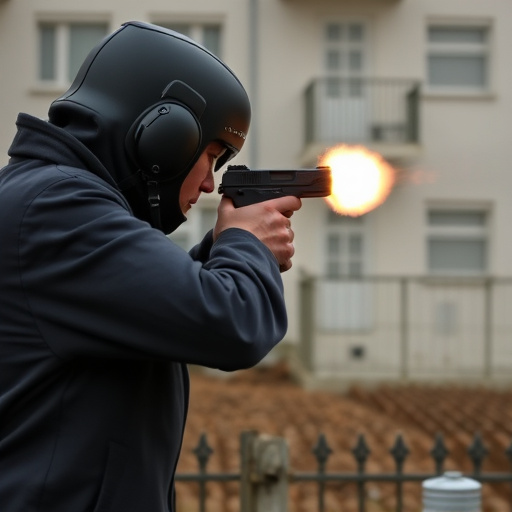
The legal implications of civilian stun gun (or taser) ownership are multifaceted, especially when considering defense and use-of-force dynamics. Each state in the U.S. has its own set of regulations governing non-lethal force devices like stun guns, with varying restrictions on who can carry them and under what circumstances. These laws are designed to balance individual rights with public safety concerns.
When it comes to workplace policies, some states allow employees to carry stun guns for self-defense while on the job, particularly in high-risk industries or environments. However, there are strict guidelines regarding training requirements, storage, and permissible use scenarios. Employers must be aware of local stun gun carrying laws to ensure compliance and maintain a safe work environment. Additionally, legal implications extend to the defense of others; individuals with stun guns must understand their responsibilities in de-escalating situations and using force only as a last resort, as defined by state law.
In conclusion, the regulations surrounding civilian tasers vary significantly from state to state, impacting the accessibility and ownership rights of individuals. Understanding these state laws, including eligibility requirements and specific rules for professional environments, is crucial for anyone considering owning a stun gun. As the debate around concealed carry rights continues, navigating these legal implications ensures responsible ownership and promotes public safety in diverse workplace settings.
